China’s flexible partnership strategy is reshaping relations in Europe and the US
With trust in the US fading, Europe is increasingly open to deeper relationships with partners such as China, says US academic Dmitry Shlapentokh. However, Europe’s fractious nature allows China’s multi-pronged policy towards different European partners to play to the latter’s advantage.
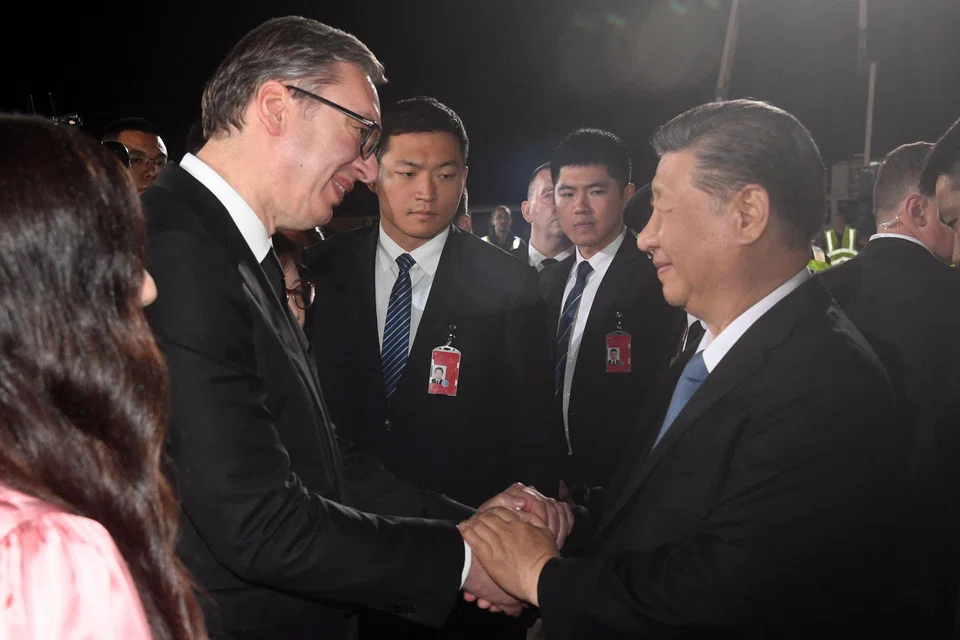
While prevailing views, at least in the West, suggest that corporate authoritarian regimes are ossified and unable to adjust to changing environments, the real story is often different. The comparison between present day China and the US could be instructive in that regard.
US interests above European allies’ interests
The US forged a web of alliances in post-WWII history for various reasons. One of them was the desire for full control. People in Washington asserted that all allies were equal, and the US was just the first among equals. But this was not the case. Washington saw its allies mostly as vassals, which would follow America’s decisions even if these harmed them.
It was noted by the late Henry Kissinger who stated with his witty cynicism that it might be dangerous to be America’s enemy but it was fatal to be its friend. The formality of alliance or a legalistic “marriage” increased the US’s ability to control its allies/vassals and demand help for Washington’s endless military ventures.
... the US would be abandoning NATO at the time when the war is waged at NATO’s border. Who would trust the US as a true military partner then?
President Bush did not consult NATO allies when he and his “neocons” planned the invasions of Iraq and Afghanistan. US allies were obliged to support the American effort in one way or another and to toe the line.
On the other hand, “divorce” from this formal geopolitical marriage is fraught with consequences which could have the most negative implications for all aspects of American life, many of which have nothing to do with geopolitics.
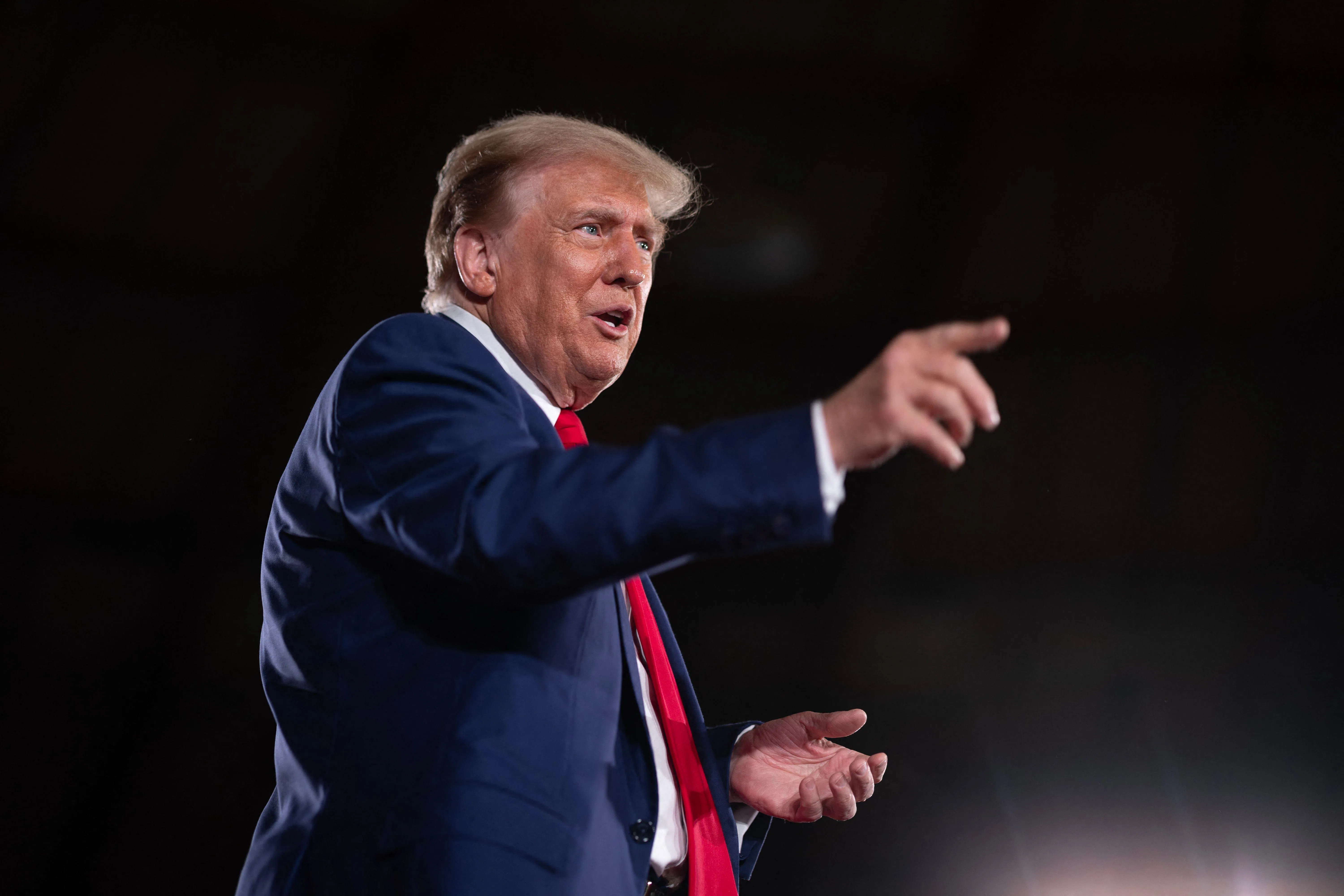
For example, former President Trump, potentially the next US president, promises to exit NATO in one way or another if he returns to office. Many observers have stated that such actions would undermine the US’s geopolitical reliability. If so, they say, the US would be abandoning NATO at the time when the war is waged at NATO’s border. Who would trust the US as a true military partner then?
Impending instability looms
Still, the implications of these outcomes could be much broader. The geopolitical “marriage” between the US and European nations was seen as a sacred union, an irrevocable “marriage”. It presumably is based on an eternal legal obligation, on the “rule of law” which supposedly is the very foundation of American society.
And if the sacred laws of geopolitical “marriage” are not actually “sacred” and the calculating head of the family easily abandons his wife and children at the time of their need, why would the other obligations be valid?
For the last few decades, the economic and by extension, social stability of the US has been sustained, in part, by the influx of foreign capital, which has helped mitigate significant social issues. Treasury bills (T-bills) are a major, and one can even assume, the US’s last line of defence.
The absence of legally fixed obligations provides Beijing with flexibility in choosing partners and it does so based on utility without damaging its reputation too much.
In the event of a potential exit from NATO by a future Trump administration, whether formally or informally, what safeguards are in place to prevent Trump from manipulating T-bills and US dollars in accordance with his “America First” policy? The very fact that such a move would inflict irrevocable damage on the US economy might not bother him for he and many members of the US elite are shortsighted.
China and the Eurasian vision
China’s operational model is different. Following its thousand-year-old tradition, Beijing is not anxious to commit itself to this or that partner which would require fixed obligations, and offers the usual propaganda-type proclamations that the relationship is conditional and pragmatic.
The absence of legally fixed obligations provides Beijing with flexibility in choosing partners and it does so based on utility without damaging its reputation too much. Beijing also plans for decades and possibly generations, prioritising stability, and does not expect immediate gratification as is the case with Washington. These premises shall be considered when analysing Chinese President Xi Jinping’s recent visit to Europe.
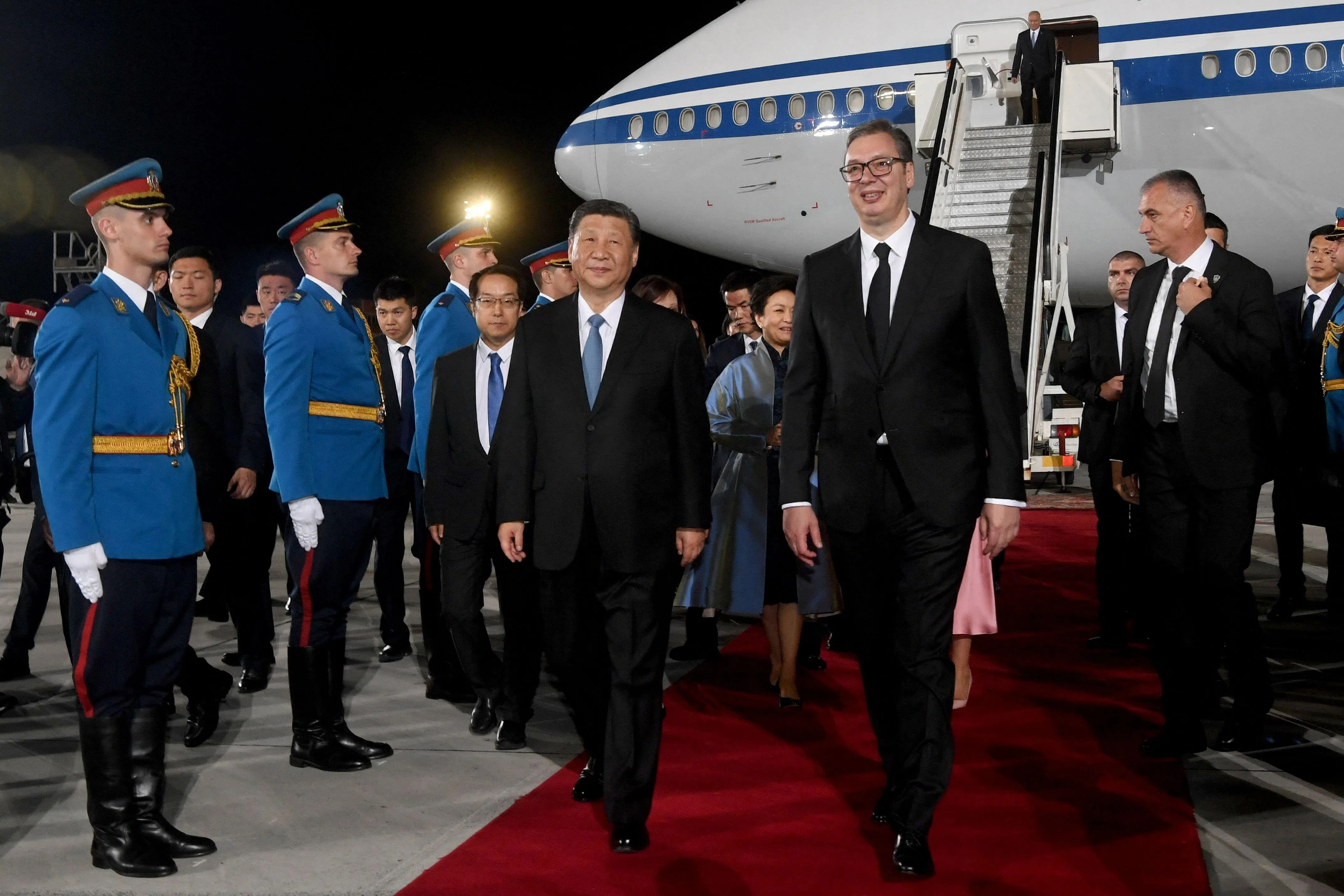
For thousands of years of its history, China was a self-centred and even xenophobic empire with limited interest in those who were not close to its border. The Great Wall was not just a defensive construction. It was also a civilisational construction which separated the Middle Kingdom from the rest of the world.
Now, however, knowing its strength and feeling disdain for the old hegemon (the US), Beijing has entered what was until recently considered the exclusive domain of the US — Europe. While the economic incentive is a clear carrot in China/Europe reproachments, it is not of paramount importance. The major overall goal of China’s Europe engagement is geopolitical and true benefits are delayed to the distant future.
As in the case with the US, post-Mao China in general followed Deng Xiaoping’s famous dictum that China shall “maintain a low profile and bide one’s time”. In these readings, China presents itself as a poor and undeveloped country which needs Western wisdom and technology. It was implied here that China would never be able to challenge the West.
... Beijing realises that the notion of a united West is basically fiction.
Germany, together with other Western nations, willingly accepted this notion. This led to economic and, in a way, geopolitical cooperation between the two countries. Still after several decades, German managers discovered that the Chinese have not only achieved the level of their German teachers but are poised to surpass them. While Berlin’s approach to Beijing has soured, it is not a total divorce. Beijing reciprocated in kind.
The same happened with two other countries which were the original focus of Beijing’s interest: the UK and Italy. The relationship with Italy was especially promising and Beijing was keen to keep it that way. So when Covid struck Italy, Beijing sent thousands of masks accompanied with a quotation from Seneca, an ancient Roman philosopher which emphasised the unity of humanity.
However, with the election of a new conservative government in Italy, the situation changed, and Rome fell from Beijing’s radar. Despite these setbacks, Beijing realises that the notion of a united West is basically fiction. Not only is there increasing tensions between Europe and the US but Europe itself is badly split.
Beijing continues to adjust itself to the new arrangements. The goal here is not to abandon the original goal of securing a foothold in Europe, but to find the “weakest links” if one would remember Vladimir Lenin’s expression. And Xi finds these links in France, Hungary and Serbia.
France: Europe’s unfaithful partner
The French President Emmanuel Macron has endlessly emphasised its dedication to the common European cause and its support of NATO. But this is hardly the case.
France, in sharp contrast with Germany, is obsessed with its geopolitical position and dreams of being taken as a great power once again. This has been its desire since the end of WWII.
At the height of the Cold War, when Soviet divisions were near Brandenburg Gate and Moscow presumably threatened to swallow up the rest of Europe, France, or to be precise, President Charles de Gaulle, visited Moscow. He also decided to take France out of NATO’s integrated military command structure and developed France’s own nuclear force. Such a tradition lived on generations later.
Just before the war in Ukraine, Paris re-emphasised Europe’s need for “strategic autonomy” and asserted that NATO was experiencing “brain death”. It implied the creation of a European army and France’s leading position in the arrangements. Paris’ desire to distance itself from Washington was exacerbated by the US’s recent actions.
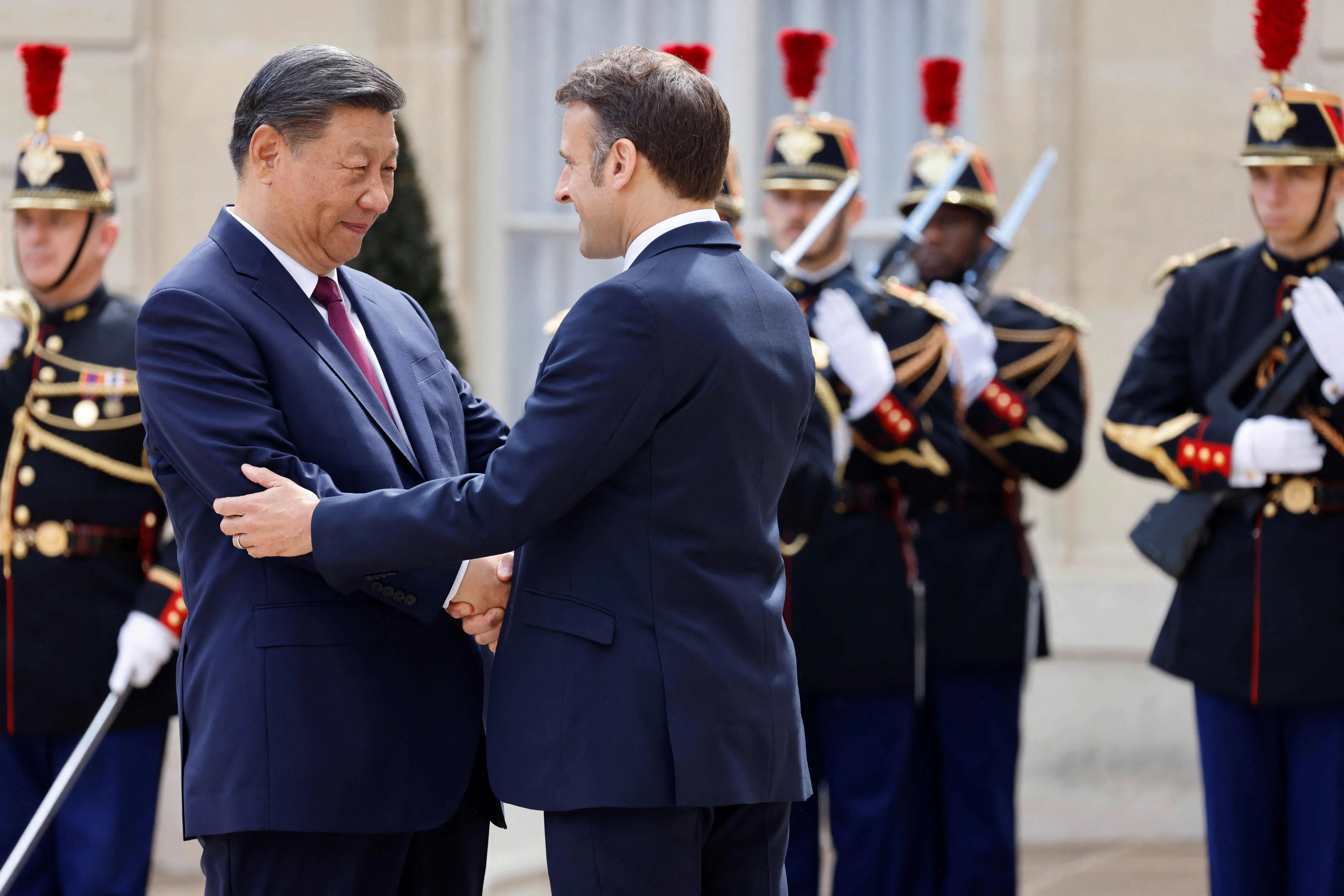
In fall of 2021, Australia abnegated its previously signed agreement with France for a multi-billion deal to upgrade Australia’s submarine fleet. Instead of France, Australia chose the UK and the US. Paris was outraged but there was nothing it could do.
Most recently, President Biden launched a campaign to attract European, including French companies, to move from Europe to the US. Macron tried to discourage Biden but once again to no avail. Outraged Paris has lost any trust it had in Washington and implicitly also lost any interest in truly coordinating its actions with NATO allies in Europe.
... while the relationship with France helps to decouple Europe from the US, the approach to Hungary and Serbia could shatter inter-European cohesiveness.
Officially Macron not only proclaimed France’s devotion to Ukraine but threatened to send troops to fight Russia, in particular replaying the story of Napoleon’s “Grande Armee” in which the French took Moscow more than 200 years ago. Still, the French ambassador was present at Putin’s inauguration. He was the only ambassador of the big countries which officially sided with Ukraine.
This implies that Paris has no obligations and is ready to engage in its own game which means working with one of the great powers to counter the US and implicitly its allies in Europe. The USSR was that country in the past and now, it could be replaced by China.
Beijing senses Paris’ intentions perfectly well and Xi made a visit to Paris earlier this month. There he received the clear sign of France’s love. France’s Safran Helicopter Engines signed support-by-the-hour contracts with China’s GDAT, a leading helicopter lessor and operator, to maintain Makila engines for Airbus H225s and Arrano engines for GD Helicopter Finance’s (GDHF) H160s.
During Macron’s visit to China last year, Airbus Helicopters had closed the deal to sell 50 H160 helicopters to GDAT. All of these could be used by the Chinese People’s Liberation Army. This was clearly a sweet revenge for the earlier submarine debacle (with Australia) in the pact.
While France could offer great value as one of the major European countries, this is not the case with the other countries Xi visited: Hungary and Serbia. Still, they were not ignored and for this plain reason: while the relationship with France helps to decouple Europe from the US, the approach to Hungary and Serbia could shatter inter-European cohesiveness. In this aim, the interests of Beijing coincide with that of Moscow.
The Hungarian/Serbia equation
While the courtship with France could help increase tensions between Europe and the US, China’s rapprochement with Hungary and Serbia has a different goal, that is, fostering disunity among European states.
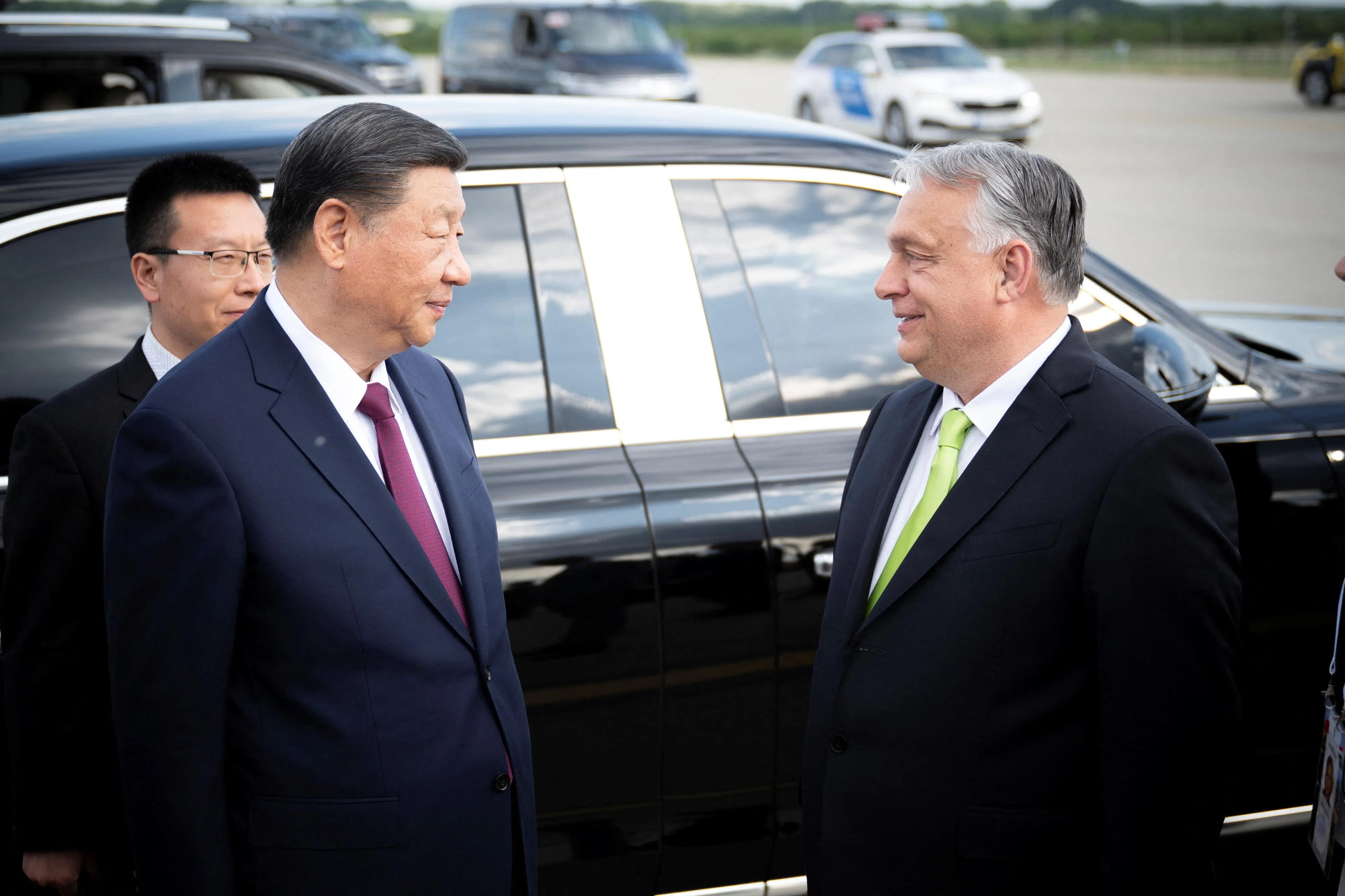
Hungary has had a reputation for being the “bad boy” in the EU for a long time. For example, it continues to have a good relationship with Russia and to receive cheap Russian gas.
Aside from Brussels, Budapest has an issue with Berlin which has emerged as Europe’s economic and implicitly geopolitical hegemon. Berlin’s concern with China’s production of cheap electric cars was noted by Budapest, which was happy to embrace Xi’s proposal to build China‘s electric car factories just at Germany’s border.
Besides Hungary, Serbia is also quite sceptical of the EU and NATO. People in Belgrade remember well that NATO planes bombed Belgrade. Xi, quite aware of this, arrived in Belgrade on the anniversary of the events. Xi’s implicit support of Serbia’s various projects indicates that China could well be an alternative to the EU.
What could be a conclusion to all this? The Chinese elite clearly understands that the notion of Western unity is mostly a myth and that increasing alienation exists both between the EU and the US and among European countries.
China’s policy is not based on a legally fixed alliance but on a more vague notion of “partnership” whose direction can be changed depending on the partner’s approach. This notion has helped China to forge a pro-China group of nations in Europe, split the EU, and at the same time increase tensions between the EU and the US.





